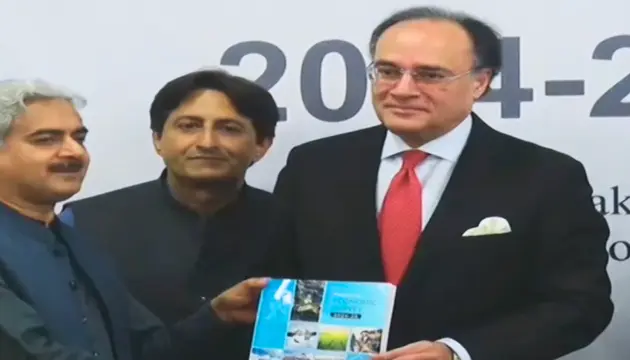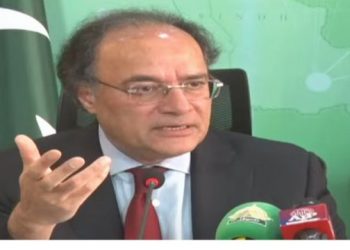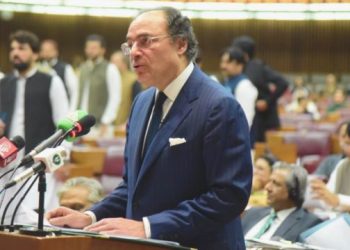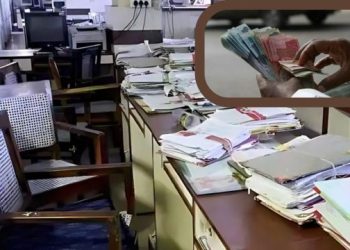ISLAMABAD: Federal Finance Minister Muhammad Aurangzeb presented the Pakistan Economic Survey 2024-25, a key pre-budget document that provides a detailed look at the country’s economic performance during the outgoing fiscal year. The federal budget will be announced tomorrow (Tuesday).
The minister said Pakistan’s GDP grew by 2.7% this year, showing signs of recovery after a contraction of -0.2% in 2023. He explained that the government is focusing on long-term and stable growth to avoid past cycles of economic boom and bust.
Inflation was brought down to 4.6% from a peak of over 29% last year, while the policy interest rate dropped significantly from 22% to 11%, easing pressure on debt servicing and saving the government Rs800 billion. Aurangzeb said this drop helped lower debt costs and improve the private sector’s access to credit.
He also highlighted improvements in the country’s external position. Pakistan recorded a current account surplus of $1.9 billion from July to April, compared to a deficit of $1.3 billion last year.
Exports grew by 7%, with IT exports reaching $3.1 billion and freelancers earning $400 million. Remittances rose sharply to $38 billion — nearly $10 billion higher than two years ago — with Roshan Digital Account inflows crossing $10 billion.
— ALSO READ —
Punjab decides to register all restaurants, marriage halls across province
On the tax front, revenue collection rose by 26%, and the number of tax filers doubled to 3.7 million. The government also used technology to track production, improve auditing, and modernise the customs system.
However, challenges remain, especially in agriculture. Key crops suffered major losses, with cotton production falling by 30%, wheat by 8.9%, sugarcane by 3.9%, maize by 15.4%, and rice by 1.4%. Only potato and onion crops showed growth, rising by 11.5% and 15.9%, respectively.
Aurangzeb acknowledged the pressure from public debt, noting that while the debt-to-GDP ratio had improved slightly to 65%, managing liabilities remains a key priority. He said the government is restructuring debt systems and encouraging banks to shift focus from lending to the government to supporting the private sector.
He also confirmed the government’s plans to privatise 24 state-owned enterprises and reduce the size of the federal government. “Forty-three ministries and 400 departments are being reviewed for rightsizing,” he said.
— ALSO READ —
Power Division issues clarification on installation of two electricity meters
The survey also reported strong progress in development and reform efforts. The Annual National Development Programme for 2024-25 was set at Rs3,483 billion, including Rs1,100 billion for federal projects and Rs2,383 billion for provincial initiatives.
The National Economic Council (NEC) endorsed the survey and praised the joint efforts of the federal and provincial governments. The NEC also set a GDP growth target of 4.2% for the next fiscal year and stressed the need to improve agricultural productivity through a long-term strategy.
Aurangzeb also said the country’s credibility had improved under Prime Minister Shehbaz Sharif’s leadership and that Pakistan now aims to enter an Extended Fund Facility (EFF) agreement with the IMF to ensure long-term economic stability and carry forward much-needed structural reforms.














